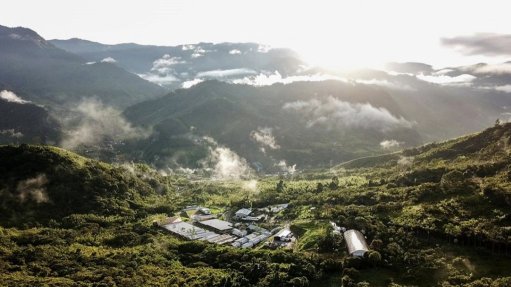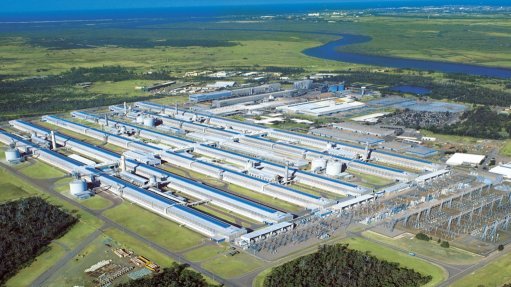Vicious cycle of municipal debt to water boards calls for comprehensive, urgent measures – Minister
Decisive action is required to break the “vicious cycles” plaguing municipalities and the water sector generally as municipal debt to water boards continues to rise, Cooperative Governance and Traditional Affairs (Cogta) Minister Velenkosini Hlabisa has said.
A comprehensive and urgent approach is needed to address the mounting crisis, particularly concerning the two most embattled water boards – Vaal Central Water and Magalies Water – which are on the verge of collapse, he told participants at a Portfolio Committee on Water and Sanitation briefing last month.
Department of Water and Sanitation (DWS) director-general Dr Sean Phillips reiterated that Vaal Central Water and Magalies Water face imminent bankruptcy, with projections indicating insolvency by May 2025 and June 2025 respectively.
This is despite drastic cost- cutting measures such as limiting expenditure to essential items like salaries, electricity and chemicals, he explained.
As of September this year, Magalies Water was owed R995.42-million, the bulk of which was overdue, while, of the total R10.29-billion due to Vaal Central, R9.9-billion – the highest of all the water boards – was 120 days or more in arrears.
The spike in debtors is mainly attributable to the debt that the water boards took over from the disestablished Sedibeng Water, which went bankrupt owing to municipal debt, Phillips added.
While Amatola Water and Lepelle Northern Water have not yet reached a critical breaking point, they are grappling with severe cash flow challenges, and Rand Water and Umngeni-Uthukela Water are experiencing declining payment levels. Only Overberg Water remains relatively unaffected by municipal debt.
The National Treasury and the DWS indicated that more than 70% of the overall R23.7-billion debt owed to water boards is older than 120 days – with arrears growing from R2-billion in 2014 to R19.5-billion in 2024.
The causes include poor billing and revenue collection in municipalities, high water and electricity losses, poor policies and water revenue being used to subsidise other municipal functions.
Municipalities collectively owe R116-billion to creditors and are themselves owed R340-billion, with households accounting for 73% of these arrears and R19-billion, or 6%, owed by government.
South African Local Government Association (Salga) Water and Sanitation Working Group chairperson Councillor Nikiwe Num and Salga water and sanitation senior manager Lubabalo Luyaba emphasised the interconnectedness of systemic challenges and the need for sustainable solutions.
“The multifaceted nature of the crisis is rooted in assumptions about consumer payment capabilities and compounded by widespread unemployment, dependence on state resources and maladministration,” said Num, emphasising that many households prioritise essential services like electricity over water payments, reflecting the harsh economic realities faced by communities.
In its presentation to the Portfolio Committee on Water and Sanitation, Salga noted that households owe municipalities R230.5-billion.
The team further pointed out that municipalities owe Eskom R58.5-billion and water boards R18.1-billion – less the current balance of R4.31-billion – with 17 of these municipalities owing water boards R16.5-billion alone.
The DWS’s Water Trading Entity is owed R17.1-billion – R8.7-billion by municipalities and R8.4-billion by water boards.
Hlabisa proposed a one-stop solution to resolve the interlinked financial challenges between municipalities, water boards and other stakeholders.
Under this model, funds owed by government departments to municipalities would be directly routed through the National Treasury, which would then allocate payments to water boards and other creditors like Eskom.
Hlabisa suggested a collaborative approach involving all stakeholders, with a clear six-month timeline to stabilise the sector.
He also called for the inclusion of government loan payments in the proposed framework to ensure a holistic resolution, which is expected to pave the way for long-term financial and operational sustainability in the water sector while alleviating the strain on municipalities and their service delivery mandates.
The National Treasury also stated that it intends to invoke Section 216(2) of the Constitution to withhold equitable share from defaulting municipalities that owe large amounts of money to water boards for bulk services.
Section 216(2) of the Constitution permits the National Treasury to withhold funds from municipalities that fail to meet compliance standards – a drastic measure to curb persistent mismanagement.
For equitable share funds to be released, municipalities must first resolve to allocate a portion specifically to paying outstanding debts to water boards, with municipal council approval.
Article Enquiry
Email Article
Save Article
Feedback
To advertise email advertising@creamermedia.co.za or click here
Announcements
What's On
Subscribe to improve your user experience...
Option 1 (equivalent of R125 a month):
Receive a weekly copy of Creamer Media's Engineering News & Mining Weekly magazine
(print copy for those in South Africa and e-magazine for those outside of South Africa)
Receive daily email newsletters
Access to full search results
Access archive of magazine back copies
Access to Projects in Progress
Access to ONE Research Report of your choice in PDF format
Option 2 (equivalent of R375 a month):
All benefits from Option 1
PLUS
Access to Creamer Media's Research Channel Africa for ALL Research Reports, in PDF format, on various industrial and mining sectors
including Electricity; Water; Energy Transition; Hydrogen; Roads, Rail and Ports; Coal; Gold; Platinum; Battery Metals; etc.
Already a subscriber?
Forgotten your password?
Receive weekly copy of Creamer Media's Engineering News & Mining Weekly magazine (print copy for those in South Africa and e-magazine for those outside of South Africa)
➕
Recieve daily email newsletters
➕
Access to full search results
➕
Access archive of magazine back copies
➕
Access to Projects in Progress
➕
Access to ONE Research Report of your choice in PDF format
RESEARCH CHANNEL AFRICA
R4500 (equivalent of R375 a month)
SUBSCRIBEAll benefits from Option 1
➕
Access to Creamer Media's Research Channel Africa for ALL Research Reports on various industrial and mining sectors, in PDF format, including on:
Electricity
➕
Water
➕
Energy Transition
➕
Hydrogen
➕
Roads, Rail and Ports
➕
Coal
➕
Gold
➕
Platinum
➕
Battery Metals
➕
etc.
Receive all benefits from Option 1 or Option 2 delivered to numerous people at your company
➕
Multiple User names and Passwords for simultaneous log-ins
➕
Intranet integration access to all in your organisation


















